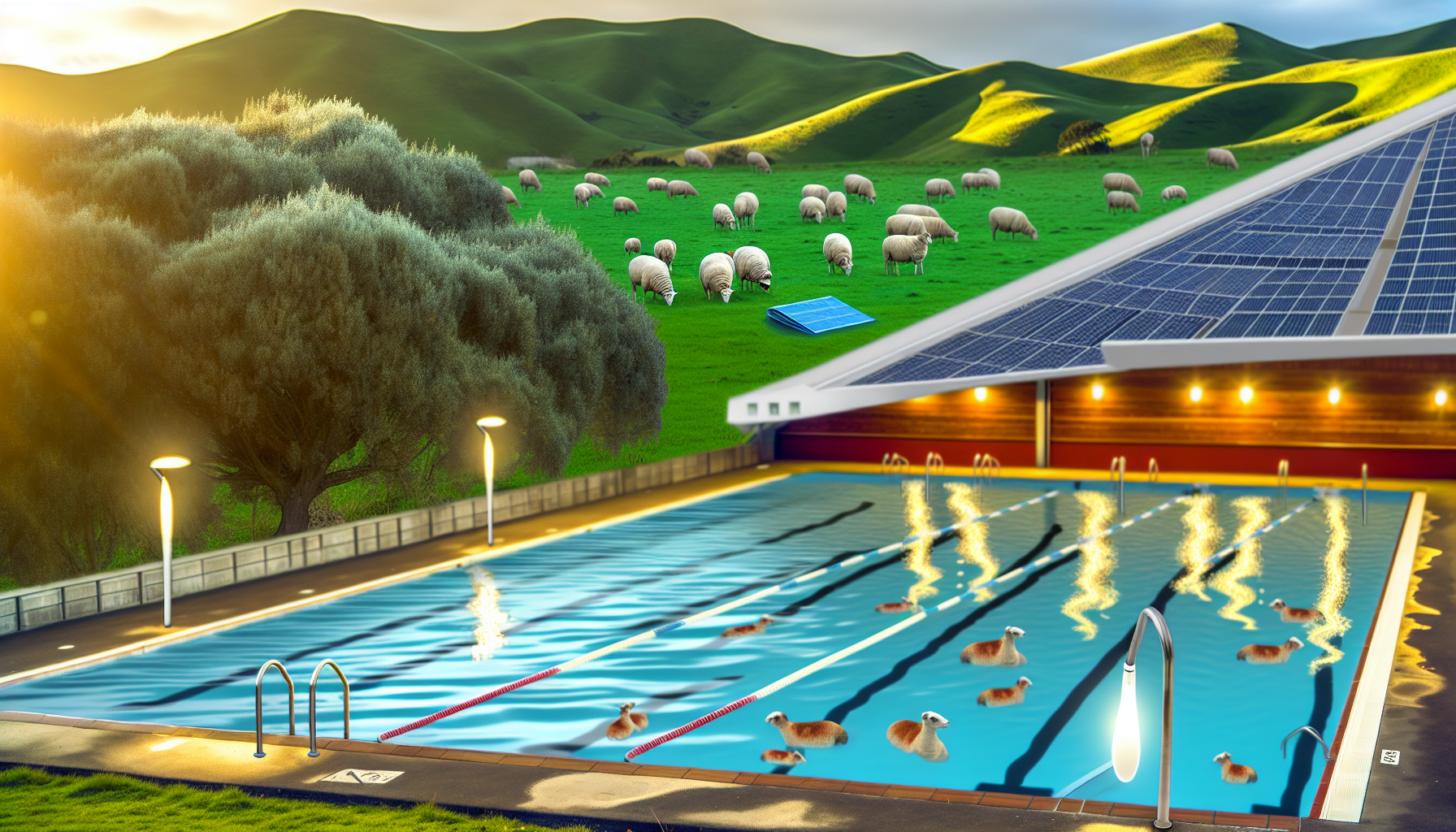The Most Energy-Efficient Way to Heat a Swimming Pool in New Zealand
Owning a swimming pool in New Zealand is fantastic for summer, but to extend the swimming season, heating is essential. However, running a pool heater can be costly if you don’t choose an energy-efficient option. As a homeowner, I wanted to explore the most efficient ways to heat my pool while keeping energy costs down and being mindful of the environment.
Factors to Consider When Heating a Pool
Before deciding on a heating system, it’s important to consider:
- Energy efficiency – Lower running costs and less environmental impact.
- Initial installation cost – Some options are more expensive upfront but save money long-term.
- Climate and location – Warmer regions like Northland may require less heating than colder areas like Otago.
- Swimming season – Do you want to swim year-round or just extend summer use?
Comparing Pool Heating Options
There are several ways to heat a swimming pool, but not all are cost-efficient. Here’s a breakdown of the most common options available in New Zealand:
1. Solar Pool Heating 🌞
Best for: Long-term savings and eco-friendliness
-
Uses solar collectors (usually roof-mounted) to absorb sunlight and warm water.
-
Works best in sunny areas, although it can still be effective on cooler days.
-
Pros:
- Free energy from the sun after installation
- Cheapest to run in the long term
- Environmentally friendly
- Low maintenance
-
Cons:
- Higher installation cost
- Less effective on cloudy or rainy days
- Takes longer to heat compared to other options
New Zealand suppliers:
- Sunlover Heating NZ offers a range of solar pool heating options.
- Ecosolar NZ specialises in solar heating solutions for pools.
2. Heat Pumps ❄🔥
Best for: Energy-efficient heating with reliable performance
-
Heat pumps extract warmth from the air and transfer it to the pool water.
-
Work well in most New Zealand climates, even on cooler days.
-
Pros:
- Uses less electricity than electric or gas heaters
- Efficient down to about 10°C ambient temperature
- Can maintain a consistent water temperature
-
Cons:
- Higher upfront cost than gas or electric heaters
- Performance can drop in very cold temperatures
New Zealand suppliers:
- Madimack New Zealand, a popular brand for energy-efficient pool heat pumps.
- Hot Water Heat Pumps NZ provides pool-specific heat pump systems.
3. Gas Pool Heating 🔥
Best for: Quick heat-up time, good for occasional use
-
Uses natural gas or LPG to heat the water rapidly.
-
Pros:
- Heats the pool quickly, ideal for on-demand heating
- Good for pools used occasionally rather than daily
- Works in all weather conditions
-
Cons:
- Expensive to run, especially with rising gas costs
- Higher carbon footprint compared to solar or heat pumps
New Zealand suppliers:
- Rheem NZ offers pool heating solutions using gas.
4. Electric Pool Heaters ⚡
Best for: Small pools and spas
-
Uses electricity to heat elements that warm water passing through the system.
-
Pros:
- Simple to install and operate
- Suitable for small pools or spa pools
-
Cons:
- Expensive to run for larger pools
- Less efficient than heat pumps
Additional Tips to Reduce Pool Heating Costs
Even the most energy-efficient heating system can be expensive to run if heat loss isn’t controlled. Here’s how to maximise efficiency:
1. Use a Pool Cover 🏊♂️
- Covers help retain heat, reducing heat loss overnight.
- Solar covers are a great option as they also absorb sunlight.
- Platinum Pools NZ provides various pool cover solutions.
2. Optimise Heating Schedule ⏰
- Avoid heating your pool 24/7; use timers to run heaters efficiently.
- Heat pump users can program heating cycles for off-peak electricity hours.
3. Invest in Wind Barriers 🌬
- Wind can cool water quickly by increasing evaporation.
- Fences, hedges, or pool enclosures help minimise heat loss.
4. Ensure Proper Pool Insulation 🏗
- If building a new pool, consider insulating the sides and bottom to reduce heat loss.
What’s the Best Option for New Zealand Homes?
For Kiwi homeowners looking for the best mix of efficiency and sustainability, a heat pump or solar heating system is generally the best choice. If budget allows, a solar system with a heat pump backup combines free energy from the sun with the reliability of a heat pump.
Do you already have a heated pool? What method do you use, and how do you find it works in your area? Let’s discuss in the comments below!


Leave a Reply